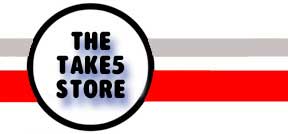The Mac Enterprise: Why It’s Not at Warp Speed
Many people are puzzled by Apple’s seeming reticence to jump full speed into the enterprise market … well, here are the reasons why it’s not on top of Apple’s to-do list:
(NOTE – GENERALIZATIONS ABOUND!)
Enterprise Market is now a Commodity Market
From 1986 to 1998, it was THE market to be in. It WAS high-tech, it was even glamorous and it was profitable. Not only did every company on the planet felt the pulling need to place a computer on every desk to keep competitive, they replaced them nearly as fast as they bought the last ones. Everyone was served by this market. At the high end, you had IBM selling machines for $6 to $8k and at the low end you had companies like Packard-Bell or Gateway selling machines for $1.5k to $3k – it was the high life. Profits gushed in and billionaires sprang up overnight. But when you have companies like Tandy, IBM, Zenith, Packard Bell, Compaq, Toshiba, NCR/AT&T, Digital, Sun, HP, Intel, AMD, Seagate, Western, Sony, Dell, etc, etc … all competing for the same buying dollar, the heady days will never last long … as the market grew saturated and component costs dropped, the lowest margin seller and the lowest overhead carried the day. Basically every company who was #1 in PC sales became a huge, fat target for the next guy to shoot down. As components became commodities, they lost their luster and pricing support. A hard drive is a hard drive is a hard drive and buyers reflected that with their budgets. The PC was no longer an exotic piece of hardware that needed careful research and analysis – it was a white cargo van, a lamp or carpet. You issued some general specs, if it matched or exceeded the specs, lowest price carries the day.
Standards becomes Bureaucracy
In the beginning, there was a hodge podge of OSes, connectors, systems, software and components and hardly any standards. I.T. was frustrated with all the choices – some purposely incompatible with others – even from a different division from the same vendor. If only there was a company willing to bend the rules of law & ethics and give us one road but let lots of cars drive on it so it would be a “choice” but not really so we don’t have to work as hard … lo and behold, you should be careful of what you wish for. A company from the Pacific Northwest was just such a company willing to bend the laws of commerce, ethics and whatever to close the deal. On one hand, you admire the moxie of doing whatever it takes to close the deal and make decision making easier. We’ll buy you outright and stamp our name on it (OS, applications, whatever) or we’ll buy you and just let your code wither away so again, one choice. If you won’t sell to us, we’ll buy your distributor and stop selling your products or claim we have a better version coming soon so why waste your money on a thing that will be inferior to our standard … nevermind, in reality, we might never release a product but hey, if you’re better funded, you could ride out the two years of not being able to sell your widget while people wait for our widget vaporware … or if you install our app instead of theirs, we’ll give you 5% off on a maintenance contract for next year … or free. So, IT got their wish – much fewer choices or in many cases – ONE Choice. Now, of course, they complain they only have one choice …
Listing Specs & Contracts
Enterprise buyers need to list the specs they want and budget for the next year – that requires gathering info, issuing a request-for-proposal, evaluate and then make a purchase decision two to ten months down the line. This is Microsoft’s strength – looking carefully at what companies, government agencies, etc … want down the line and adding these requirements to their apps. In one sense, you could call this customer service, WHATEVER you want, we’ll give it to you. That sounds great to the office that issues the proposal. The end result however is of course you have a tendency towards bloatware & brochureware. Everything that can go on a checklist is added whether it’s 250 starburst shapes or having a full fledged spreadsheet in WORD (couldn’t you just launch Excel & copy?). Note that usability or user interface or whether it’s good to have an app with 2,000 features doesn’t factor much into the equation … because a checklist is factual and can be defended – the rest is just heresay and subject to opinion.
[youtube=http://youtube.com/watch?v=CEmZuieb7TM]
Not MY Department
Literally, sure – alot of people will argue TOC (total cost of ownership) and yes, very applicable to individuals or small businesses because you can see the cash flow OUT OF YOUR POCKETS … but corporations treat it different because: a) it’s departmentalized; b) it’s taxed differently; c) how it’s “accounted” for (in the literal accounting sense) differently and; d) how it’s reflected in the books for shareholders and the SEC. Boring, mundane stuff but that’s the way it is.
a) The hardware buying budget is a capital purchase and subject to the biggest bang for the buck (the most you can get on the most desktops – lamps or PC’s – and going by purchase price ALONE and in volume purchasing, PC’s do tend to be cheaper simply because someone is willing to sell a PC with the Bluetooth chip ripped out for $2 less and hey, if you’re buying 10,000 machines, $2 is $2). Software, maintenance, IT expenses, training is NOT their budget. They don’t really care. Yes, we’re on the same team but if it’s not my budget, good luck to you …
b, c & d) The hardware buying budget is also subject to a writeoff – almost always to zero because that’s the easiest way to deal with it. They actually prefer PC’s because it’s easier to write it off to ZILCH after 5 or 7 years – the accountants don’t care or do NOT want to know that a Mac after 5 years might still be worth $200 on eBay or Craigslist – that’s too much bloody work. ZERO is much easier to deal with. That is why corporations tend to store old PC’s and monitors in some giant warehouse storage until it’s worth so little they have to pay someone to take it away. THEY can write that off that expense. It’s too annoying to have to deal with noting that the PC’s in storage might be worth $15 in parts. Note – I am generalizing.
So, where does that leave Apple & the Mac? While most of the above reasons contribute about 50% to the reason you don’t find an overwhelming number of Macs in most large corporations, Apple also culturally approaches the market differently.
Commodity Market
Even at its low ebb during the no Steve Jobs era and the days of the Performa, Quadras and LC’s – Apple never thought of themselves as just another PC maker … partially because they were using the chip hardly anyone else was using but also because as a software-hardware company, they had different margins and couldn’t really price below others … so if your main criteria is price – Apple was at a tactical and strategic disadvantage.
Standards
Given a choice between a Microsoft standard or another one – or of course, an Apple standard – Apple tended to go its own way … most Apple choices are/were theoretically technologically superior such as SCSI versus parallel ports but PC makers never strayed from the cheapest choice – which also encouraged the most competition – which further created the illusion it was the “best choice,” since at that time – popularity equated superiority.
Roadmap
Apple gave roadmaps to what was coming in the early 1990’s and it was a miserable failure. Unlike Microsoft or Intel who are more than willing to tell you where they are going because they don’t manufacturer the cars. They make the engine and the road and then let others fight it out to sell you the shell of the car. They don’t care if today it’s under an eMachine and two years later, eMachines is dead – replaced by a Dell. But Apple as a company who makes the road and the car cannot afford to kill a line today to sell a different line tomorrow. That was the problem. When the roadmap to where the Moto chips was going and what Apple model would have what were announced, corporations slowed or stopped buying. What’s interesting is that when Apple announced a transition to the Intel chip some 15 years later, analysts thought it would be a repeat of what happened before (or dubbing it incorrectly, the Osbourne Effect) and while growth slowed just a tad, sales hardly were affected because Apple’s buyers today tend to be mostly individual or SoHo sales, they needed a computer today – can’t wait until tomorrow or 6 months – if I want an Intel Mac in 6 months, I’ll sell this one and buy another one … corporations and enterprise don’t think like that. What’s interesting is that Microsoft wants to try Apple’ road in not really pre-announcing anything until it’s ready to ship … in MS’ case, it might actually fail and annoy their customers who are used to planning out their buying needs for years at a time.
TOC
The TOC conundrum puzzles people because study after study clearly shows that Macs are cheaper using total cost of ownership math but that’s NOT how corporations work. The guy in charge of capital goods (hardware, etc …) does not care how much each office spends in paper clips … nor does he care about training, virus or security issues … just like he doesn’t care how many security guards patrol the building at night – not his department, not his budget.
Apple, of course, tends to sell you the whole package – whether it’s the webcam or iLife … they don’t really want to go to trouble to strip out a version for you and then charge you $35 less or $50 less while conversely on the PC, there is ALWAYS someone willing to strip out something as mundane as USB if you don’t want at $1.15 a PC or something like that. That is why you can buy a Linux PC for $199 or you can just go and buy a motherboard and build out from there … just like GM will sell 200 white mid sized sedans with bench seats if you want while you try that at BMW … does it matter that BMW will pay for all maintenance for 5 years? If it’s money out of your pocket, you do that math and figure out if it’s of value to you but to the cap goods budget guy, all he sees is the price he/she is paying today out of their budget. The rest is not his/her budget.
The Culture
Finally, it’s the culture. Microsoft is built like a car lot – we’re interested in volume and we will deal. We’re not above twisting our words a bit or taking your car keys for an evaluation and not giving them back to you until you initial here and here.
Apple does not believe in blatantly selling to you. Sure, it can seem like arrogance but Apple’s philosophy could be seen as enlighten selling … here it is, we like it so we think you will also. If you don’t – whatever. We are not going to over-sell you because if you can’t see the value (or brilliance) of our efforts, clearly we don’t want anything to do with you either. This attitude is reflected in the stores – there is very little hard sell. We have presented everything as perfectly and as open as possible. Clearly, if you are a reasonable, sensible and smart person – you can see the value of what we are offering you.
This is of course, completely different than Microsoft – who is also arrogant but in an entirely different manner. They get perplexed and then angry when people don’t buy their products because they see themselves as geniuses so only an idiot would turn down an offering from us. Look at how confused they are that people aren’t beating each other up to buy Vista or why they don’t really care about post purchase customer satisfaction. They cannot conceive of anything they sell as imperfect – it must because you are an idiot. But in the realm of the enterprise market, it works perfectly to their advantage. MS will send dozens of people to figure out exactly what your spec requirements are and because it eventually makes it onto paper, they just take that back and shove every feature in every release – you asked for it – and we as geniuses delivered! And the beauty of an IT staff for different enterprises is they figure out how to make it work even though the product is not quite perfect – just look at the issues of 117,000 viruses and MS’ attitude that it’s not our fault – we did our part – once we ship it, it’s up to you to get as smart as us. This is why in the internet age, they are perplexed by consumers. They ask us what we want and yet, we don’t follow through like the enterprise buyers do (who of course if they don’t spend the cap budget get a smaller one next year).
The Zune is the perfect example of a product designed by MS’ research & focus group. It’s got a longer list of features than the iPod and a bigger screen – our checklist is staggering! And yet, consumers just shrug. Is it easier to use than the iPod? – of course not, you can’t really define that on a checklist.
So, in that same line, Apple could easily hired thousands of sales people to go and pitch the enterprise market but why don’t they? Beyond reasons a, c, c & d of the “numbers” reasons – after all, there’s plenty of revenue to chase but is there enough profit for the effort? But, more importantly, it’s just not in Apple’s culture to actually go and knock on doors to “beg” for a sale – how uncouth. That is why Apple doesn’t “need” you to see what they are working on because it will be great – trust us, it’ll be wondrous. You will be awed when it’s done and you’ll want it. We need not say or do more. Now, it’s not always as dazzling as an iPhone but that’s the attitude they start with.
That works GREAT for the consumer market because honestly, we don’t know what we want or don’t want – if we followed through with everything we’d say we’d do, most of the fast food companies would be out of business, so would most of the alcohol companies and we’d be mostly in church or reading literature while listening to our Zune’s. But we do like to be surprised and dazzled and that’s where Apple delivers.
The enterprise market basically tells anyone who will listen EXACTLY what they want in 6-12 months. So, when the enterprise market drove the high tech business 15-20 years ago not only with dollars ready to spend but with high margin purchases ($6k PC’s) and even a whiff of glamour and sexiness, MS was king of the heap in more ways than one. Now, the enterprise market while still huge in buying power is mostly only interested in the lowest and cheapest common denominator. It’s not sexy and you basically fight to sell scrap while conversely, the consumer market is this wild and drunken gambler pushing BILLIONS of dollars of chips from whatever catches his/her fancy – whether it’s digital cameras or iPods or iPhones … MS just doesn’t get why they ask consumers what they want and they deliver that checklist only to be mostly ignored.
And that’s the kind of people who go work at MS and Apple reinforcing the company culture – it’s not that they aren’t smart at Microsoft, they listen and read the enterprise proposals and deliver exactly what’s on the list … but additionally, that company culture of a checklist mentality just causes consumers to go me’h – if anything, it confounds them because after all, we’re Microsoft, we’re smarter than you! On the other hand, Apple is not going to grovel for a sale and sure, you can tell them what you want but if they don’t think it’s worthy or un-necessary, they’re not going to clutter up the “thing” … so enterprise is annoyed because they’ll tell Apple flat out what they want and Apple just says ‘whatever.’ However, this aloofness towards the consumer translates into a treasure hunt mentality and totally out of proportion PR attention … which further confuses & confounds Microsoft.
Yes, in some senses, they are both in the software-hardware industry but like apples to beef jerky – both are food items but no one should confuse the two.
| « NBCU and Newscorp Launch New Video Portal Hulu | Wired Magazine’s Quiet Little Custom Cover Effort & Hyperlocality Opp Missed » |





